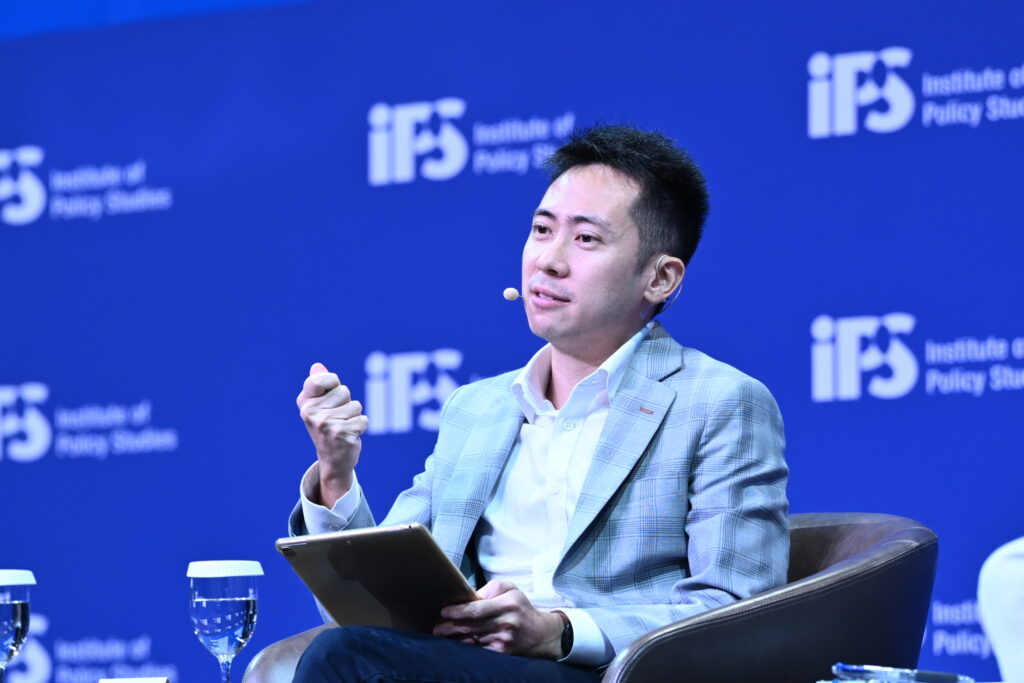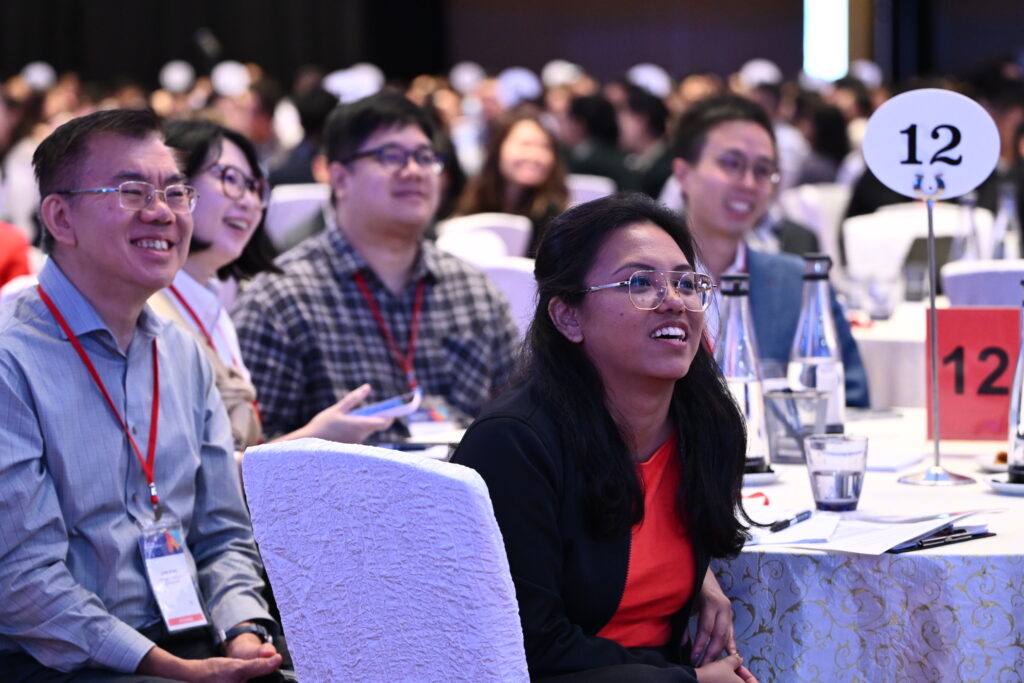Rewriting the Family Rulebook
February 22, 2024
IN BRIEF | 8 min read
- NUS alumni Mr Darius Cheung (Engineering ’04) and Dr Shannon Ang (Sociology ’15) recently shared their insights at Institute of Policy Studies’ annual flagship Singapore Perspectives conference, exploring the hopes, fears, expectations of youths in relation to family life.

“I think it is impossible for society to agree on the definition of a successful family,” said Mr Darius Cheung. “We have to accept that we won’t have the same definition, and that is OK.”
Mr Cheung was speaking at Singapore Perspectives – the annual flagship conference by NUS Lee Kuan Yew School of Public Policy’s autonomous research centre, the Institute of Policy Studies (IPS). Held on 22 and 29 January 2024, the latest edition of the conference (SP24) saw six sessions that centred on the perspectives of youths in Singapore on areas including politics, work and wellbeing.
Mr Cheung, together with fellow NUS alumnus Dr Shannon Ang, Assistant Professor from School of Social Sciences, Nanyang Technological University; and Mr Yuvan Mohan, a member of the Families for Life and National Youth Council, were part of a panel for a session focusing on the topic of “Youth and Family”, moderated by Institute of Policy Studies Senior Research Fellow Dr Tan Poh Lin.

Tackling New Norms and Relative Scarcity
Leveraging his expertise as co-founder and chief executive officer of online property marketplace 99.co, Mr Cheung observed that rising property prices are a deterrent for youths planning to start a family of their own. Yet the real issue isn’t with absolute, but relative scarcity.
“We live in the top one to five per cent of the world: [most parents] in Singapore [don’t worry] about feeding their child or putting a roof over their family’s head. [More often] the problem is relative scarcity, such as choosing between a public or private preschool.” Mr Cheung elaborated: “This relative scarcity gets worse when you have more than one kid and have to split your resources. The fear of inadequacy – of not providing your child with the best – is very real.”
The father of a seven-year-old child also highlighted that the situation is even worse for single mums and other non-traditional family units who do not qualify for baby bonus or tax incentives.
Dr Ang agreed, noting that many surveys have shown that youths aspire to have children, but do not act on this: “There is a widening gap between reality and the ideal young people want. When young people say that it is expensive to raise a child, they are not talking about just monetary but opportunity costs, and this cost constantly inflates. This isn’t just because they have crazy ideas of their child being at the top – even being average is expensive.”

Family vs Work: What Comes First?
The tension between pro-family and economy-first positions has to be recognised: “Family and work cannot be both first,” Dr Ang stressed. “If our society values economic success more, we cannot blame young people from having that perspective.”
He also questioned the sustainability of hiring foreign domestic help so that both parents can work to sustain standards of living; or how realistic it is to see grandparents as “free childcare labour”, especially when the population is expected to work for longer. “I don’t know how the math works,” he conceded.

Echoing Dr Ang’s point, fellow panel member Mr Yuvan Mohan said that tension between prioritising family above economic interests need to be addressed in the shaping of public policies – from housing to CPF usage to leave allowance.
Mr Yuvan proposed a holistic approach to youths dealing with having families — a community of care. This means having institutionalised elder- and childcare facilities, recreational and lifestyle options, alongside high- calibre schools within easy access from a person’s place of residence, so that the physical environment of the community can support all aspects of family life.
Drawing parallels to mentorship systems in the corporate world, he also proposed that youths could benefit from intergenerational conversations — and with peers who have been-there-done-that — when it comes to dealing with family responsibilities.

This story first appeared in the AlumNUS on 7 February 2024. It was written by Koh Yuen Lin; photos courtesy of Jacky Ho, for the Institute of Policy Studies, NUS.

